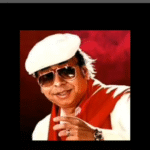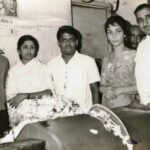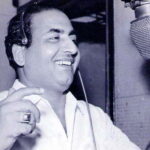On October 31, half a century passed after S.D. Burman, that timeless composer and singer, achieved immortality. Born on October 1, 1906, his melodies were always known to be ahead of their times. A unique and ace singer as well, Dada (as he was known) believed not in belittling but in battling with the next generation, as many of his contemporaries (a long list really, except for Jaikishan, Chitragupta, C. Ramachandra and O.P. Nayyar who had similar positive temperaments!) were prone to do.
A year before his demise (in summer 1974), I still recollect the kid in me—an avid Binaca Geet Mala (India’s first radio countdown) aficionado—listening to the show and finding four Kishore Kumar (a Dada protégé) songs battling for the No. 1 position each week—Dada’s Yeh lal rang (Premnagar), son R.D. Burman’s Kishore-Lata duet, Jai jai Shiv Shankar (Aap Ki Kasam), Laxmikant-Pyarelal’s Gaadi bula rahi hai (Dost) and Kalyanji-Anandji’s Mera jeevan kora kagaz (Kora Kagaz).
Interestingly, the first three songs were penned by Anand Bakshi, another perennially young-at-heart writer. It is even more significant that when Dada returned with a bang (after a passing lull due to ill-health after Jewel Thief) with Aradhana (1969) and Bakshi, he went on to write for 12 more of the 24 films Dada scored music for until his passing!
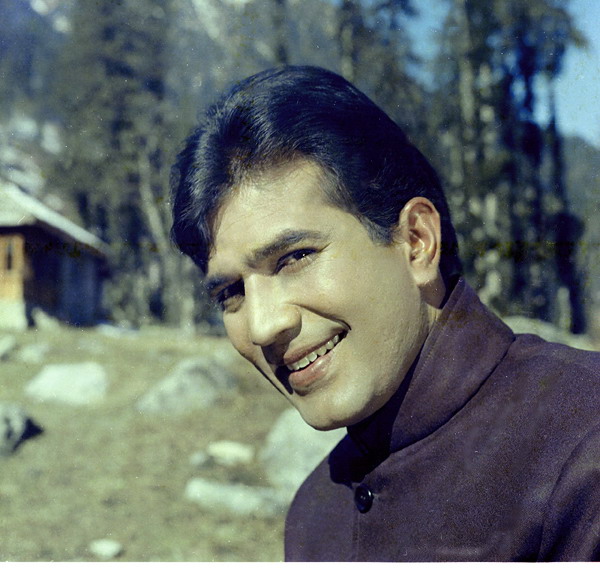
To state that Dada’s music remains evergreen is a truism as obvious as night following day. Dada had a Bengali non-film, stage and movie career before he shifted to Mumbai in 1944, though his Hindi singing debut was in 1934 in Kolkata under K.C. Dey, Manna Dey’s uncle in the film, Seeta, reportedly the first Indian film ever shown at any international film festival).
In Hindi films, Ashok Kumar introduced Dada as composer with two films, Eight Days and Shikari in 1946, and though he scored music for a few films since, with some popular songs in Do Bhai, Dil Ki Rani (in which he made Raj Kapoor sing O duniya ke rehne waalo bolo kahan gaya chitchor) and Shabnam, his career took off only after Mashal (1950), a film he was planning to leave incomplete and return to Kolkata as he was disillusioned with the lack of success.
In quick succession, Baazi, Sazaa, Naujawan and Bahar, his 1951 quartet, saw Dada zoom to the lead echelons. After Jaal, Taxi Driver, Devdas, Munimji and Funtoosh there was no looking back.
Besides introducing Kishore, Dada had a major role in the careers of Geeta Dutt, Mohammed Rafi and Asha Bhosle. Geeta, until then known as a singer of devotional songs, got a ‘hep’ makeover with the sultry songs of Baazi. Mohammed Rafi, who was known for his litanies with Naushad and his high-pitched songs, got the smooth-as-silk serenades, especially for Dev Anand, in Solva Saal, Pyaasa and Kaala Pani. And Asha Bhosle, after Dada had a long yet thankfully passing rift with Lata Mangeshkar, got sterling melodies in those few years, as in Pyaasa again, Nau Do Gyarah and Chalti Ka Naam Gaadi.
But it was from 1957 that Dada became truly invincible, carving his own special and immortal niche amidst the other stalwarts led by Shankar-Jaikishan, Naushad and O.P. Nayyar.
Here then are the cult scores, decade-wise:
1957-1959: Paying Guest, Pyaasa, Nau Do Gyarah, Solva Saal, Chalti Ka Naam Gaadi, Kala Pani, Sujata & Kagaz Ke Phool
1960: Manzil, Kala Bazar, Bombai Ka Babu, Baat Ek Raat Ki, Bandini, Meri Surat Teri Ankhen, Tere Ghar Ke Samne, Ziddi, Teen Devian, Guide, Jewel Thief, Aradhana, Talash, Prem Pujari, Ishq Par Zor Nahin, Gambler, Naya Zamana, Tere Mere Sapne, Sharmeelee, Yeh Gulistan Hamara, Abhimaan, Premnagar, Chupke Chupke & Mili
Melodies of Youth
GenZee will probably identify most with Aradhana delights Mere sapnon ki rani and Roop tera mastana. But there are many more: Raat akeli hai, Yeh dil na hota bechara and Honthon mein aisi baat (Jewel Thief), Khoya khoya chand (Kala Bazar), Yeh mahalon yeh takhton and Jaane woh kaise log the (Pyaasa), Waqt ne kiya (Kagaz Ke Phool), Rangeela re (Prem Pujari) and almost the entire scores of Chlati Ka Naam Gaadiand Guide. And this is not a comprehensive list either!
Unsung scores
Every composer has a couple of scores that go unsung in the popularity stakes, mainly due to the failures of the films. Happily, Dada only had two such musical masterpieces—Ishq Par Zor Nahin and Yeh Gulistan Hamara. In the latter, he introduced actor Danny Denzongpa as a voice for Johnny Walker in the hit Lata duet, Mera naam Aao! Interestingly indeed, Danny never acted in any film of Dada!
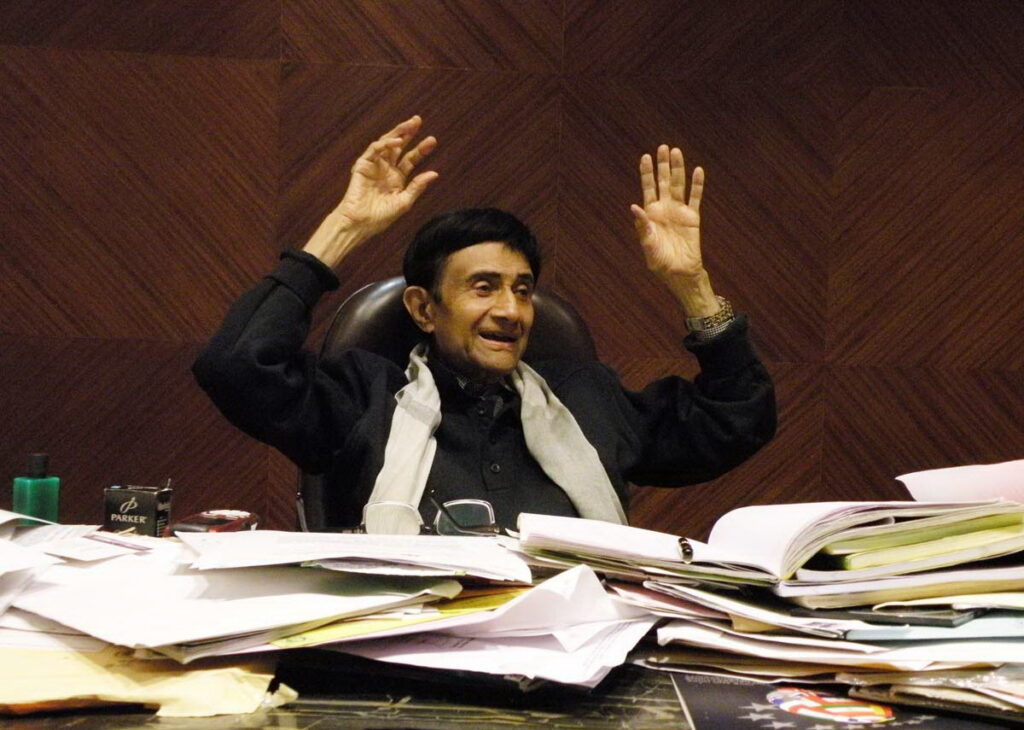
And Dada’s only negative aspect, if it can be termed that, was that he never introduced any leading singer. Even Kishore Kumar was actually introduced as a featured voice by Khemchand Prakash in Ziddi, though he was a chorus singer in Shikari.
Associations
Dada vibed best again with two more names that were always ahead of their times—Dev and Vijay Anand. He also formed a great if limited association with Guru Dutt (Jaal, Pyaasa, Kagaz Ke Phool) and Hrishikesh Mukherjee (Abhimaan, Chupke Chupke, Mili). His older favourite lyricists were Majrooh Sultanpuri and Shailendra, though he vibed well with Sahir Ludhianvi, and later Neeraj and Yogesh.
Dada obviously gave off his best also for Lata Mangeshkar and Manna Dey (besides Rafi, Kishore, Asha and Geeta Dutt) and his own voice as a uniquely expressive voice was best experienced in Meri duniya hai maa tere aanchal mein (Talash), Kaahe ko roye (Aradhana), Wahan kaun hai tera (Guide), the title-track of Prem Pujari, Sun mere bandhu re (Sujata) and Mere saajan hai uss paar (Bandini).
Ten Trivia for the record
- S.D. Burman’s last release was the Sharmila Tagore home production, Tyaag in 1977.
- His last recording was probably Chal sapnon ke shehar mein in Deewangee produced by Subodh Mukerji and directed by Samir Ganguly, the men behind Sharmeelee. He quit the film after that because of his ill-health and the rest of the songs were composed by Ravindra Jain.
- It is said that he composed the Lata-Mili evergreen, Maine kaha phoolon se, a frothy song, from his hospital bed!
- Lyricist Yogesh has stated that Dada was not very happy with the treatment son R.D. Burman gave to one of the Kishore Kumar numbers in the film, Badi sooni sooni hai or Aaye tum yaad mujhe.
- It is said that Dev Anand wanted Dada to compose the traditional melodies for Hare Rama Hare Krishna and R.D. to do the hep ones. Angrily, Dada said that his son could do the entire score.
- The hit song, Maine poochha chand se, was composed by Dada and used by Sanjay Khan with R.D. recording it afresh. The Burman father and son exchanged a few more songs as well, with Dada telling his son in the late 1950s and early 1960s that he was “testing his songs on the public”!
- Dada composed a single song in R.D. Burman’s Amar Prem, Doli mein bithaye, which he also sang.
- R.D. Burman sang with his father and Lata Mangeshkar in the song Raina soyi soyi in Yeh Gulistan Hamara. This is the only song he has sung for a composer other than himself.
- In the 1970s, the friendship between Dada, son R.D. Burman, Kalyanji-Anandji and Laxmikant-Pyarelal was legendary. A frustrated clique of composers had complained to the President, alleging “monopolistic practices” by these six names!
- Iconic lyricist Indeevar had lamented to me that the only composer he could never work with was S.D. Burman!



